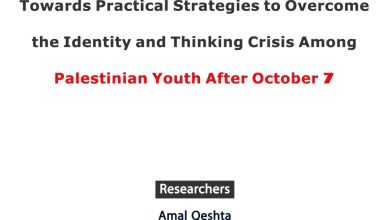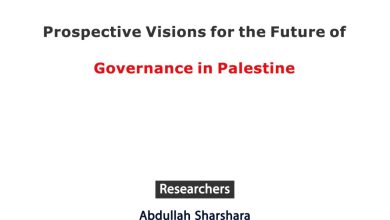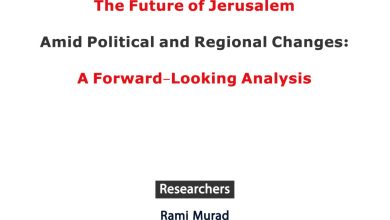Policy Paper(Visions to Support the Palestinian National Reconciliation Conference): The Palestinian Liberation Organization (PLO) Committee

Nasser Eleiwa. Graduate of the university of Damascus-philosophic studies-in 1981. Researcher in the political affairs. In his research paper “The Palestinian Liberation Organization (PLO) committee” said that PLO represents symbolic, national and moral dimension. Nevertheless, he agreed that the PLO was subjected to many accumulations of crisis as well as internal and external conspiracies which were encircled quickly. The crisis of PLO was aggravated after the signing of Oslo accord which established the Palestinian Authority (PA), a matter which led to structural ,programmatic, and functional crisis as well as external crisis resulting from the crisis of PLO factions . He classified the two key dilemmas of the PLO: a. First: abrogating the monopolization of the founding factions of the PLO and opening all levels of the PLO to all powers/factions of the Palestinian people. b. Second: To introduce a national program for all the Palestinian Spectra. These breakthroughs can be achieved via: 1. Comprehensiveness of representation and expression including geographic representation 2. A comprehensive national working program to run all aspect of economic, social, cultural aspect of peoples’ lives and manage the struggle with Israel at peace or war. Practical preposition for the reform process: 1-The Palestinian National Council: I. The factional solution away from any possible electoral process in Jordan for the members of the Palestinian National Council. II. Possibility of holding elections in Syria and Lebanon on condition of transparency and integrity. 2-The Central Council: I. Determining membership of the central council, role and its legal position. 3-The Executive committee: the equation of the factional representation should be in parallel with the non-factional society powers except that we will go to replacement system.




